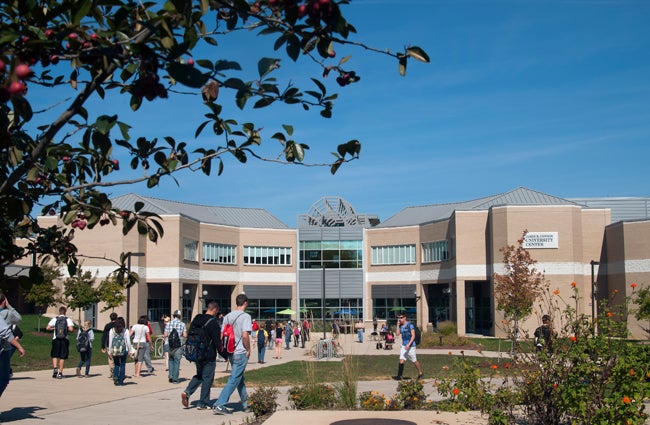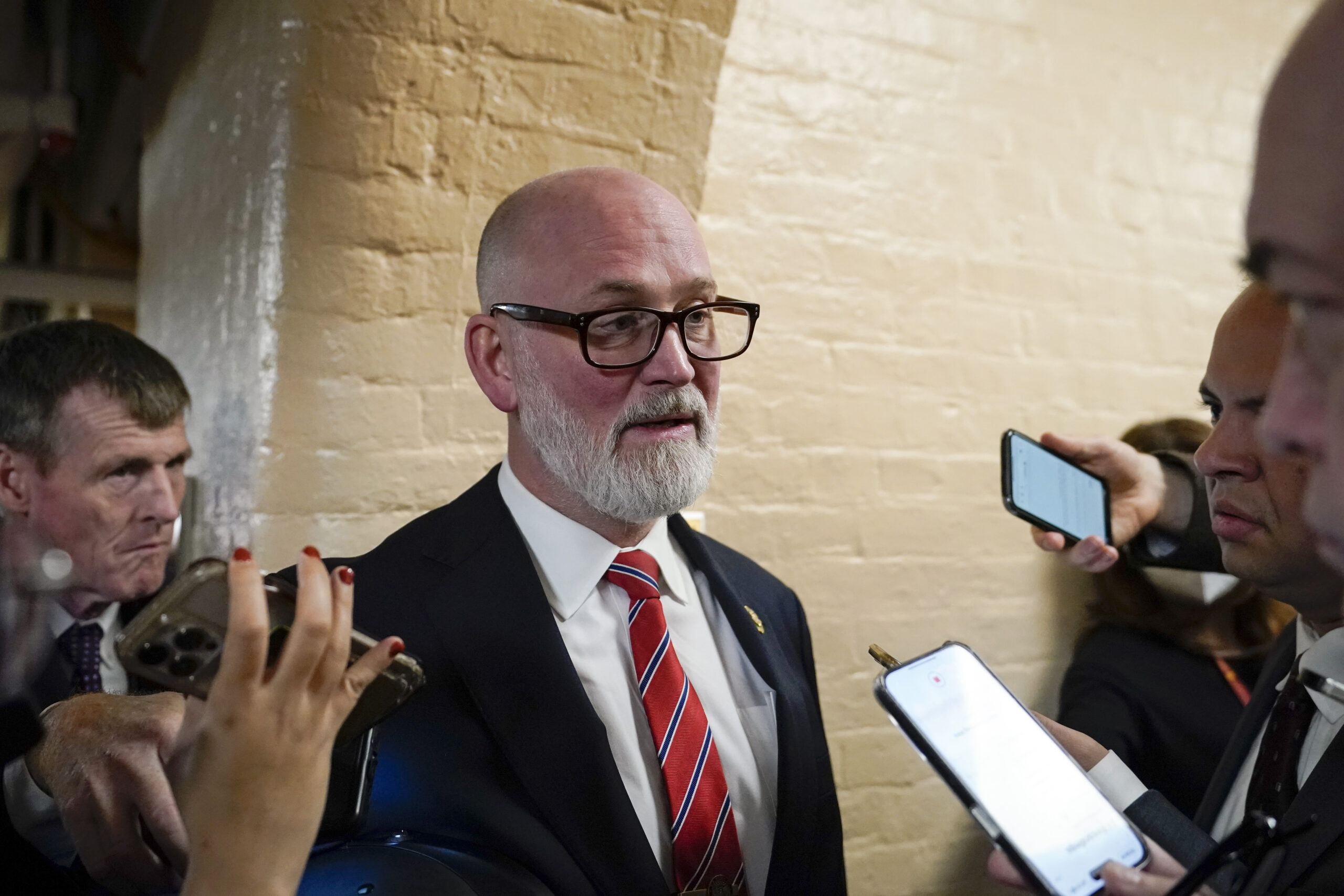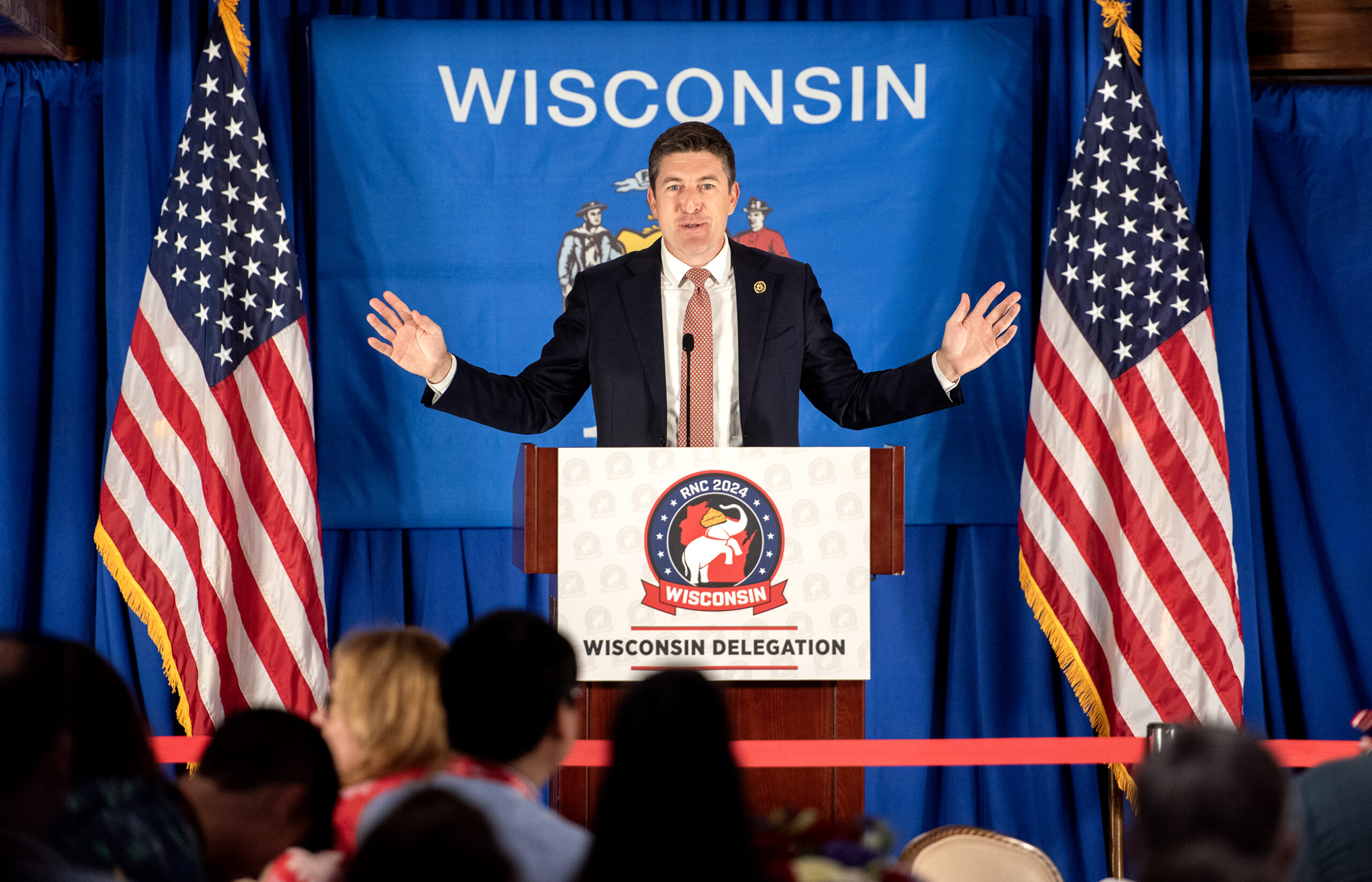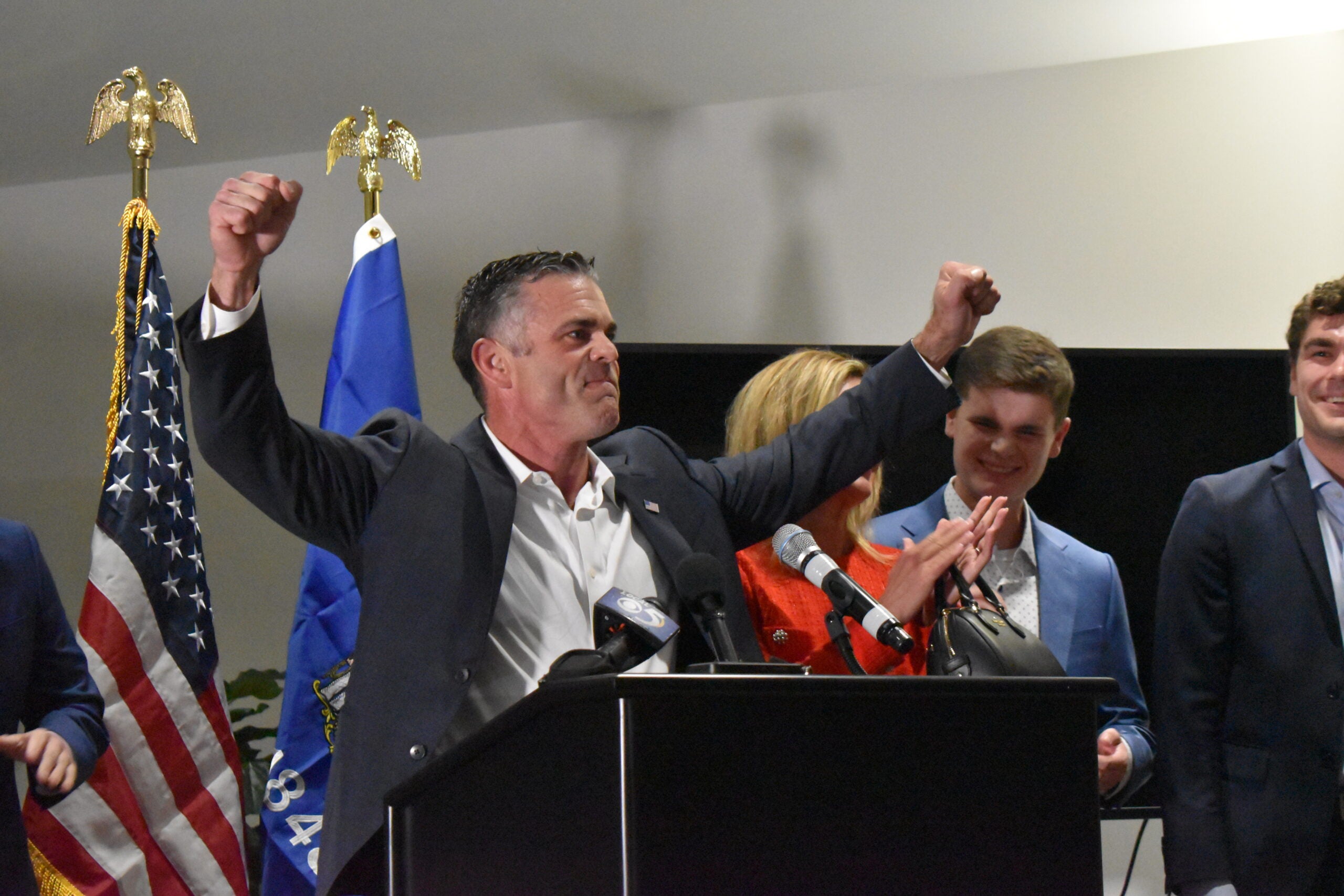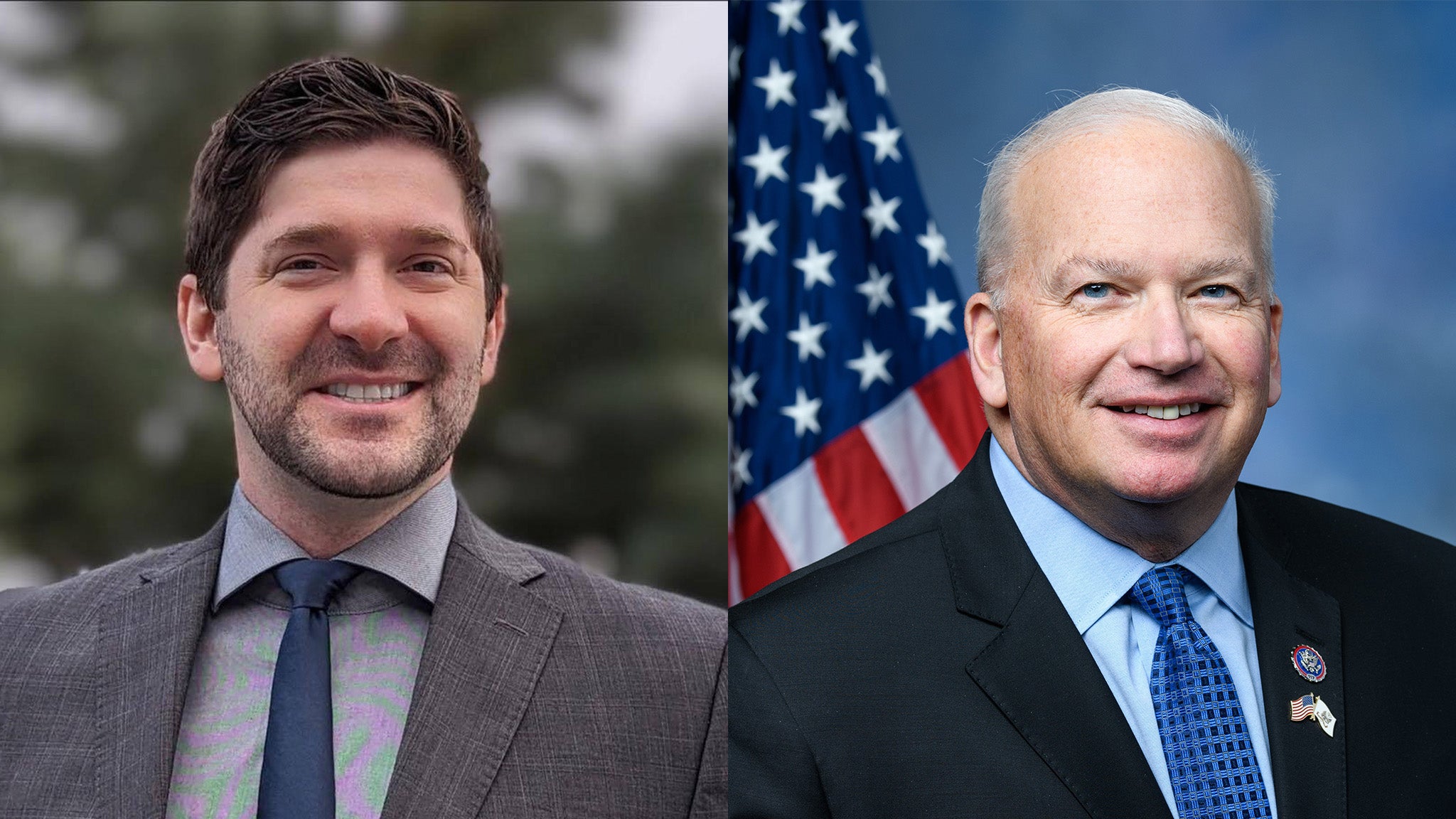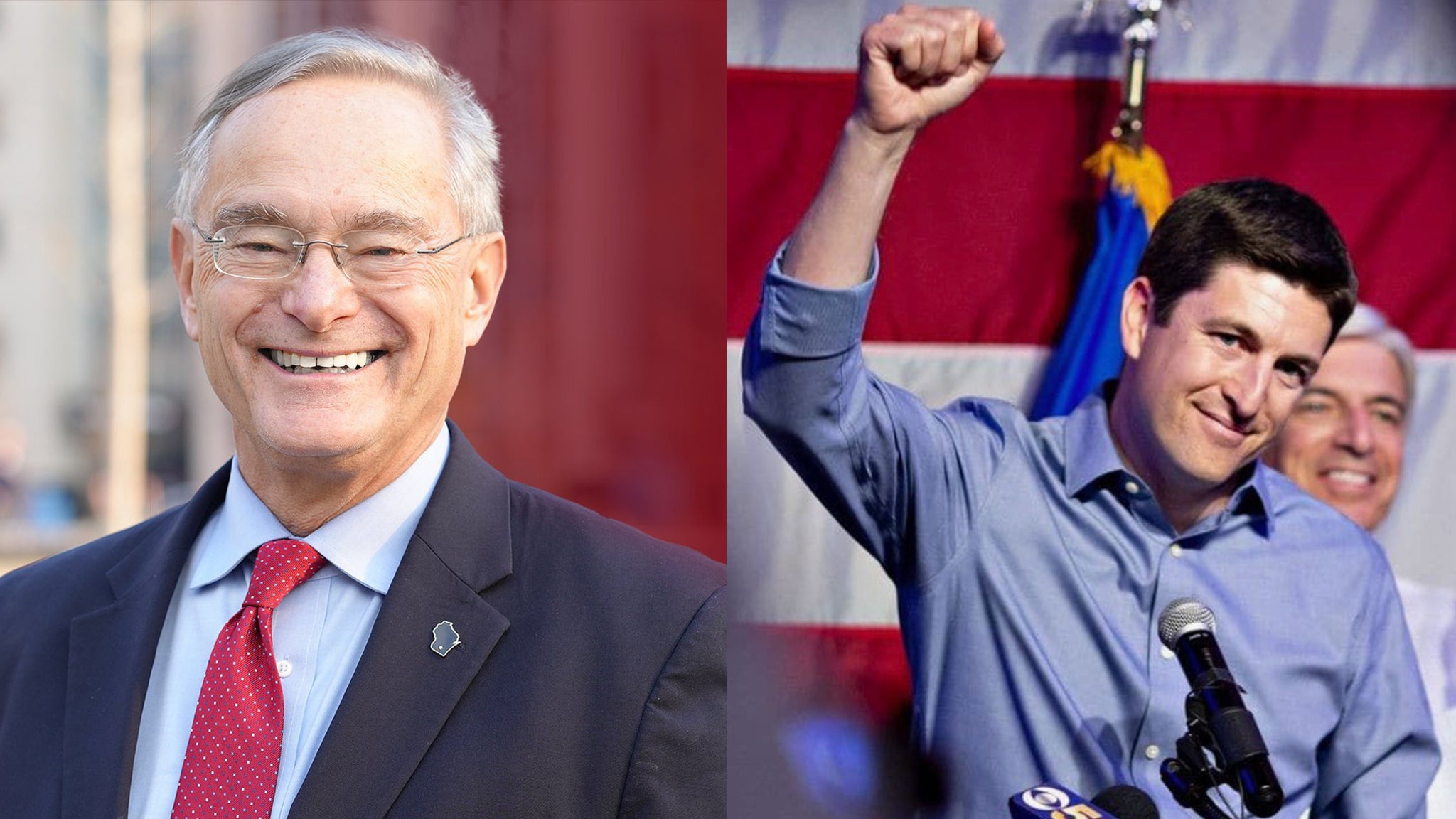While UW-Madison’s student enrollment continues to hold steady, other UW campuses are dealing with declining enrollment and what comes after — cuts and a tightened budget. We hear from a guest who thinks it’s time for the UW System to rethink its approach for the future. We also hear from two candidates, Randy Bryce running for the 1st Congressional District seat, and Tom Palzewicz running for the 5th Congressional District seat.
Featured in this Show
-
Health Care, Infrastructure Top Issues For Randy Bryce
Wisconsin’s 1st Congressional District race has garnered national attention since its current occupant, House Speaker Paul Ryan, announced his retirement after nearly 20 years in the seat.
Democrat Randy Bryce — an ironworker, former union organizer and veteran from Caledonia, Wisconsin — will face Republican Bryan Steil in the midterm election Tuesday, Nov. 6 for the southeastern Wisconsin district, which covers all of Kenosha and Racine counties, and parts of Milwaukee, Rock, Walworth and Waukesha counties.
Bryce recently spoke with WPR’s “The Morning Show” host John Munson. The interview has been edited for brevity and clarity.
John Munson: For better or worse a lot of people see this race as a referendum on House Speaker Paul Ryan. How do you convince those voters in this district that change is what’s needed?
Randy Bryce: Paul Ryan has talked about his plans for protecting Social Security as he calls it, but that was just merely privatizing it, turning it into a coupon care type of system.
And we just saw recently after he gave away $1.5 trillion to the richest people in the country, I mean this is a tax plan that 83 percent of the wealthiest people in the country were going to benefit from … for working people it’s going to cost us more. But after seeing that tax scam one week later he came out and he admitted, well now we have to make cuts to Social Security, Medicare and Medicaid, he called them entitlements. But these are paid benefits that people have been contributing to their entire working life.
JM: Senate Majority Leader Mitch McConnell recently said that the only way to lower that deficit would be to cut social safety net programs like Medicare, Medicaid and Social Security. That doesn’t sound like something you’d be willing to accept. Why?
RB: Absolutely not. These are things that help keep our elderly people out of poverty.
A lot of people don’t have pensions to rely on, 401(k)s. This is what a lot of people depend on, this is their lifeline to keeping a roof over their heads, to getting some kind of, you know, some amount of food on the table. It’s one of the most successful social programs in the history of the United States and nobody has done more to attack it than Paul Ryan and the Republicans.
I want to stop rewarding the wealthiest people in the country who donate to campaigns … this trickle down experiment that started under President (Ronald) Reagan has been shown to be a failure. It’s just contributing to the income inequality, and especially right here in Wisconsin where the middle class is disappearing faster than any other state in the country.
JM: In your view what needs to happen with the Affordable Care Act or just health care in general?
RB: Right now we need to protect the things that are in place, especially pre-existing conditions. And unfortunately (Gov.) Scott Walker is directing Brad Schimel, the Wisconsin AG, to force ahead a lawsuit that’s going to take that away from so many people.
I’ve been in favor of Medicare for all. People deserve to have access to health care because right now even if they are insured, they can’t afford to use it. People are stretching out their medications, I’m hearing about diabetics that are stretching out their insulin because they can’t afford to go get it as frequently as it’s prescribed … that’s not an adequate way of administering health care. And every other industrialized country around us has some kind of universal health care.
JM: Besides the economy and health care, what do you think is one of the biggest issues affecting the 1st Congressional District?
RB: A huge issue is our infrastructure … one of the committees I’d love to serve on is transportation, with my background being a union ironworker, that’s something I’ve done for the last 21 years. Our roads and bridges are in horrible shape. It’s a great way to get people back to work and our infrastructure’s due.
The life expectancy of the projects that were built was like 50, 75 years ago and that was done, that was one of the ways we got out of the Great Depression was by building it. And that turned us into a superpower. It’s time to reinvest in the United States because it’s due to be reinvested in, to have our bridges upgraded, roads upgraded.
-
5th Congressional District Candidate Tom Palzewicz: Health Care Most Decisive Issue
Voters in Wisconsin’s 5th Congressional District will head to the polls Tuesday, Nov. 6 for the midterm election between Democratic candidate Tom Palzewicz and incumbent Republican congressman Jim Sensenbrenner, who has held the seat for 40 years.
A small business owner and Navy veteran, Palzewicz is vying for the seat that covers much of Milwaukee’s western suburbs and portions of Jefferson, Washington, Dodge, Milwaukee, Walworth and Waukesha counties.
Palzewicz recently spoke with WPR’s “The Morning Show” host John Munson.
The interview has been edited for brevity and clarity.
John Munson: How does your experience in finance and as a small business owner relate to the work that you’d do in Congress.
Tom Palzewicz: First off, my six years in the Navy, four years on a nuclear submarine really taught me servant leadership and I’m a big believer in servant leadership. I think people should lead for the benefit of all, not for the benefit of themselves.
And then I was in banking for 15 years really dealing with risk management for banks and dealing with Wall Street and I had to watch the economy every single day. I really understand how the economy works, it’s really about wage growth. Job growth is great and it’s good to have jobs. Wage growth is the thing that really gets the economy moving and continues moving. And then last but not least is just owning a business with my brother. We teach small business owners how to grow their business.
JM: Our infrastructure is in need of a lot of work, but there’s disagreement over how to pay for it. As a member of Congress, what would you seek to do?
TP: First and foremost we have to pay for what we’ve already decided that we’re going to have run through the federal government. This tax cut … that the administration and the Republicans put together has really created a problem for our economy and a problem for our government because right now we’re running close to a trillion dollar deficit in an economy that’s doing well.
If you look over the long term, it really helps to have a government that balances their budget or runs a slight surplus when things are good so that there’s money to prime the pump when we run into a recession. We just have to raise taxes to an appropriate level. I don’t think anybody wants to pay more taxes. But I think we all understand that we have to pay for the services.
I’m a big believer that we need to make government more efficient and more effective and not vilify government.
JM: What do you think is the most important issue facing the 5th Congressional District?
TP: In this district it’s really about health care. Starting new businesses and job portability and mobility is very difficult because people have to understand they need to get their health insurance first, especially if you have pre-existing conditions. I’m a business owner and I’ve talked to other business owners, and we’ve never understood why we’re involved in health care. It really doesn’t make any sense to have businesses involved when we can get people covered, and in fact we’ll have more job growth because there will be more businesses that start because people will be able to start a business without having to think about health care.
But more importantly we’re moving to a different kind of economy, an economy where people will be much more portable and do a lot more what I call independent contracting. In order to do that though they’re going to need solid health insurance and health coverage, and I just think it opens up a whole different way of doing business.
JM: The last Congress left behind a lot of unanswered questions about immigration. Both parties agree there needs to be something done, but there is no agreement on what the fix would look like. What would be your approach?
TP: We’re a country of immigrants, and I think it’s really important for us to understand that we need immigration to grow our economy.
There are about 1.1 job openings for everyone who’s unemployed right now who wants a job. Immigrants are not coming here to take our jobs, they’re not coming here to commit crimes, they’re coming here to work. And there’s a lot of jobs, especially in Wisconsin, there’s a lot of jobs that immigrants do.
And I think it’s important for us to fix immigration in a way that we make immigration easier and faster because it really helps our economy. There’s only really two ways to grow the economy, people either make more money and spend it or we make more people. And immigration provides an influx of people that want to be here and want to participate and want to help grow the economy.
-
1st Congressional District Interview: Randy Bryce
We begin a series of interviews with the candidates running for Wisconsin’s 1st Congressional District seat, which covers the southeastern part of the state. The seat is currently held by House Speaker Paul Ryan, who is retiring. First up, we talk with Randy Bryce, the democratic candidate looking to replace Ryan.
-
Declining Enrollment Numbers Highlight Divide Between UW-Madison And Other UW Campuses
While things appear to be going well for UW-Madison, it’s a different story for the rest of the University of Wisconsin system. In recent years, many of the state’s UW campuses have seen declining enrollment, resulting in lost tuition revenue and creating tight budgets. Our guest says it’s time for the UW System to rethink its strategy going forward if it wants to remain sustainable well into the future.
-
Candidate for Congress, District 5 – Tom Palzewicz
As part of WPR’s ongoing election coverage we are featuring interviews with candidates on the 2018 midterm ballot. This week we’re talking with candidates for Wisconsin’s 5th Congressional District. According to his campaign website, Democrat Tom Palzewicz is a small business owner and Navy veteran. He is running against incumbent Republican Congressman Jim Sensenbrenner.
Episode Credits
- John Munson Host
- Chris Malina Producer
- Jana Rose Schleis Producer
- Randy Bryce Guest
- Tom Palzewicz Guest
- John Torinus Guest
- Sarah Hopefl Technical Director
Wisconsin Public Radio, © Copyright 2025, Board of Regents of the University of Wisconsin System and Wisconsin Educational Communications Board.
